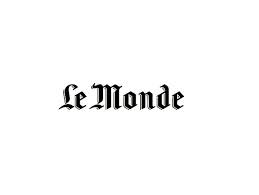China
China's diplomatic, military, economic and technological assertiveness, as well as its growing rivalry with the United States, raise certain apprehensions among its neighbors and Europeans alike.
Related Subjects



Understanding China’s Financial Expansion
In this interview, Claude Meyer underlines the three major vulnerabilities of the Chinese economy, and describes the investments China has made since the early 2000’s to address them.


L'empire de la classe du milieu
Apparue en même temps que le miracle économique, la population des couches moyennes incarne un pays en pleine mutation : confort matériel, meilleure éducation, ouverture sur le monde... mais aussi rupture avec les valeurs traditionnelles.

Le changement politique tente peu la classe moyenne chinoise
Michel de Grandi présente les conclusions de l'étude d'Alice Ekman sur les classes moyennes chinoises.
What is China's vision in shaping cooperative frameworks? Interview with Richard W.X. Hu
Richard W.X. Hu, Professor in the Department of Politics and Public Administration at the University of Hong Kong, analyzed China's role in the regional economic integration process.
- What is China’s vision in shaping cooperative frameworks?
- What is China’s rationale behind setting up the Asian Infrastructure Investment Bank?
- What is your prognosis for the future of a China-Japan-Korea cooperative framework?
Click here to read the program of the conference.




Faut-il avoir peur de la Chine?
A l'occasion du nouvel an chinois, Stéphanie Gallet et ses invités s'intéressent à la Chine, géant d'Asie, colosse économique et pays parmi les plus pollués au monde.
Las nuevas rutas chinas de la seda
¿Qué tienen en común el trayecto de tren más largo del mundo, el puerto del Pireo y un centro logístico en Kazajistán? ¿O Duisburgo, en Alemania, las islas Maldivas y Gwadar, en Pakistán? La respuesta es China. Todos forman parte del ambicioso concepto que Pekín ha convertido en una de las grandes prioridades de su política exterior: la formación de extensas redes de transporte, comunicaciones e infraestructuras que partan de China y, por vía terrestre y marítima, lleguen a Europa.
Support independent French research
Ifri, a foundation recognized as being of public utility, relies largely on private donors – companies and individuals – to guarantee its sustainability and intellectual independence. Through their funding, donors help maintain the Institute's position among the world's leading think tanks. By benefiting from an internationally recognized network and expertise, donors refine their understanding of geopolitical risk and its consequences on global politics and the economy. In 2025, Ifri supports more than 80 French and foreign companies and organizations.













